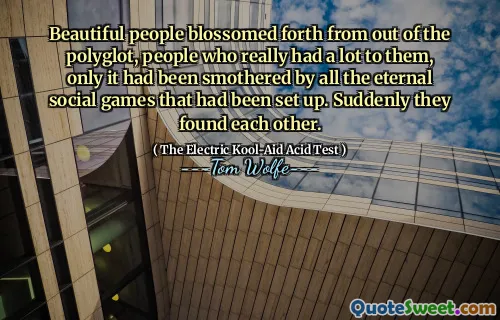
And you spend your day going around from the house of the washerman to the house of the sweeper, asking about this one's son and that one's nephew, but spending no time with your own family. It is no secret that many people here think that you are a communist. Rasheed reflected that this probably meant only that he loathed the poverty and injustice endemic to the village, and that he made no particular secret of it.
[This excerpt highlights the often stark contrast between outward social interactions and true personal priorities. The individual is shown to be concerned with the superficial act of circulating among the villagers, inquiring after their relatives' lives, yet neglects his own family’s emotional and material needs. This behavior underscores the universal human tendency to be preoccupied with societal appearances or external duties, sometimes at the expense of genuine personal connections. In marginal or impoverished communities, the superficial act of being involved in others’ affairs might be mistaken for engagement or activism, but the quote explicitly notes that underlying motives, like condemning poverty and injustice, are often subtle or unspoken. Rasheed's reflection acts as a critique of performative concern — that external actions do not necessarily reflect internal values or intentions. Often, social labels like ‘communist’ can be misapplied or misunderstood, used to brand someone based on superficial judgments rather than on authentic efforts to address fundamental issues like poverty and inequality. This passage invites us to consider the importance of authentic involvement and the dangers of superficial social interactions that obscure deeper commitments. It calls for introspection on whether one's actions are truly aimed at addressing core problems or are merely social appearances that mute genuine change. Such reflections are essential to understand the disparity between public personas and private convictions in both personal and societal contexts.




